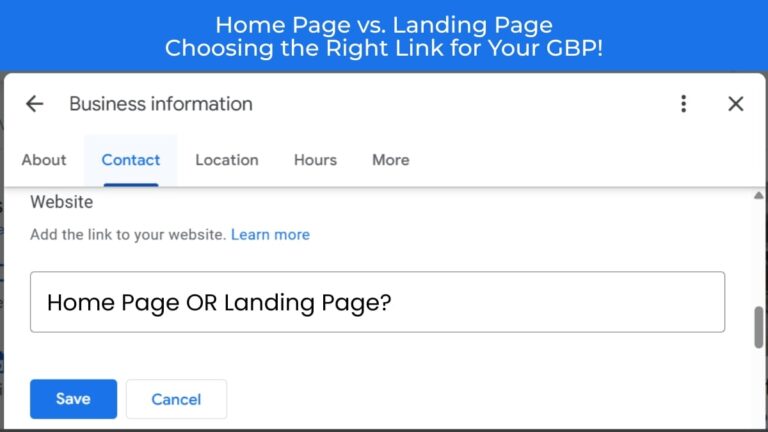Ranking on Google is one of the most important goals for a website. What is the point of having a website if there are no visitors? The purpose of having a website is to connect with your customers online.
Ranking higher on Google helps you in doing exactly that. To achieve visibility, marketers employ various strategies to target essential keywords for their website.
One of the most effective ways is through content marketing, and at the heart of content marketing lies blogging—a simple yet powerful way to share valuable information with your audience.
Whenever someone faces a problem, they usually Google it and try to find a solution. Customers typically read the article, watch the video, and conduct their research before making an informed decision.
During this research stage, blogs written by you could be very helpful for them, and this allows you to capture them early during their research stage and offer your brand as a solution.
This can be proved as a strategic tool that, when done right, could significantly boost your rankings and bring in quality traffic to your website.
This article will explore how blogging can help you rank high on Google, and benefits of blogging, and much more related to this.
Why Ranking on Google Matters?
A website’s success is determined by how well it the traffic to the website- and how you do that. Well, the best way to increase traffic to your website is to organically increase your website ranking and capture as many keywords as possible.
As a digital marketing expert, you can boost website visibility by following well-designed strategies that include blogging. A blog allows you to share valuable information that your potential customers are looking for.
When you share that information, you can influence them at an early stage and increase the chances of them becoming your customers.
By educating your potential customers, you subtly influence their buying decisions, earning their trust and nudging them closer to conversion.
Let’s dive deep and break down how blogging plays a pivotal role in helping your website rank on Google.
How can Blogs help your Rank on Google?
Ranking on Google is one of the most important aspects of owning a website, as it is the core purpose of having a website. To achieve that, you need to have a smart strategy, and blogging can play a key role. Here’s how blogs can help you rank on Google:
Fresh Content Signals Relevance to Google
Fresh and updated content signals authenticity and real information, which is why Google rewards the website that regularly updates its content.
You can use blogging to keep your website updated, and if you look at this, it is also a natural way to keep your site active. If you are a brand-new website, then actively blogging, like posting once a day or at least a few times a week, can boost your overall ranking.
Blogging also offers you an opportunity to build a strong internal linking strategy, which is yet another ranking signal for Google, helping you rank websites for competitive keywords over time.
Targeting Long-Tail Keywords Naturally
There are various kinds of keywords that you can target, and if you have a robust SEO Campaign, then you would have a mix of keywords. When you post blogs regularly, you have an opportunity to capture as many keywords as possible related to your industry.
Here are some of the keyword types that you come across when you work on the content-
- Primary Keywords- Main keywords of your business
- Secondary Keywords- Keywords supporting the primary keywords
- Tertiary (Territory) Keywords- These are less important but can still bring in extra traffic
- Short-tail Keywords- Broad and competitive keywords are usually 1-2 words
- Long-tail Keywords- More specific, less competitive keywords
- Branded Keywords- Keywords that include your brand or business name
Blogs help you to explore all these types of keywords, allowing you to create content where you can cover all of these keywords.
Internal Linking to Boost SEO
Internal Links are those links that you give to your page by anchoring it to one of your related pages. It helps Google in understanding your site’s structure and helps those links to be indexed.
It is also a ranking factor helping you in ranking your website higher. With blogging, you can have more internal links, which guide both users as well as search engines through your website. This improves the crawlability, spreads link equity, and helps you rank for your core pages.
Increased Dwell Time and Lower Bounce Rates
When visitors land on a blog that provides them value, information they link then, they tend to stay longer and explore more pages of that blog. This increases the dwell time and reduces your bounce rates.
Dwell time is how long someone stays on your site, and bounce rate is how many people leave after visiting just one page. Both of these are signals to Google about whether they should rank your website or not.
Earning Backlinks Through Quality Blogging
Earning backlinks naturally is very difficult, but when you blog regularly then your chances of naturally getting backlinks become easier. Backlinks are the links that other websites give to you and are a major ranking factor.
Writing high-quality content with in-depth blog posts helps your website deliver value, which attracts links to your content as a reference. These backlinks not only bring direct traffic but also improve the DA, making it easier for you to rank your website for more keywords.
Building Authority with EEAT (Expertise, Experience, Authoritativeness, Trustworthiness)
When you are authoritative, you can dictate the market, and Google values this authority. Google ranks the authoritative website higher on rankings that allow it to show Expertise, Experience, Authoritativeness, and Trustworthiness (EEAT).
You can utilize this authority in your blog content, tutorials, case studies, and by providing expert opinion and demonstrating your authority in your industry. This builds trust and helps you strengthen your online presence.
Supporting Your Core Pages with Related Topics
Blogs can be an amazing support page for your core pages, which brings in business. Using blogs, you can target related keywords, long-tail keywords, and create a web of content for your audience. This signals to Google that you are a hub of information within your industry. And ranks your overall website higher.
Improved Indexing and Crawlability
Every new blog post gives positive signals to Google that this website regularly updates hence, the Google crawler would crawl your website quickly, allowing you an opportunity to be up-to-date. Your site will be fresh and active, hence, you’ll get priority in the search results.
Conclusion
Blogging is not just about sharing information, it is a strategic asset that helps your overall SEO efforts. This helps you in increasing the time spent by a user on your site, building quality backlinks, improving crawlability, and reinforcing authority.
If you want your website to be more than an online brochure, you have to post blogs; this not only helps your website to rank higher but also helps you in gathering an audience for your business.
I am Sunil Tarwara, a seasoned IT professional with over 13 years of hands-on experience in Website Development and Digital Marketing. With a deep understanding of the challenges faced by businesses, I have been trusted by hundreds of clients to achieve their digital goals. I have Master’s degree in Information Technology.
Apart from websites, I like hill stations.




